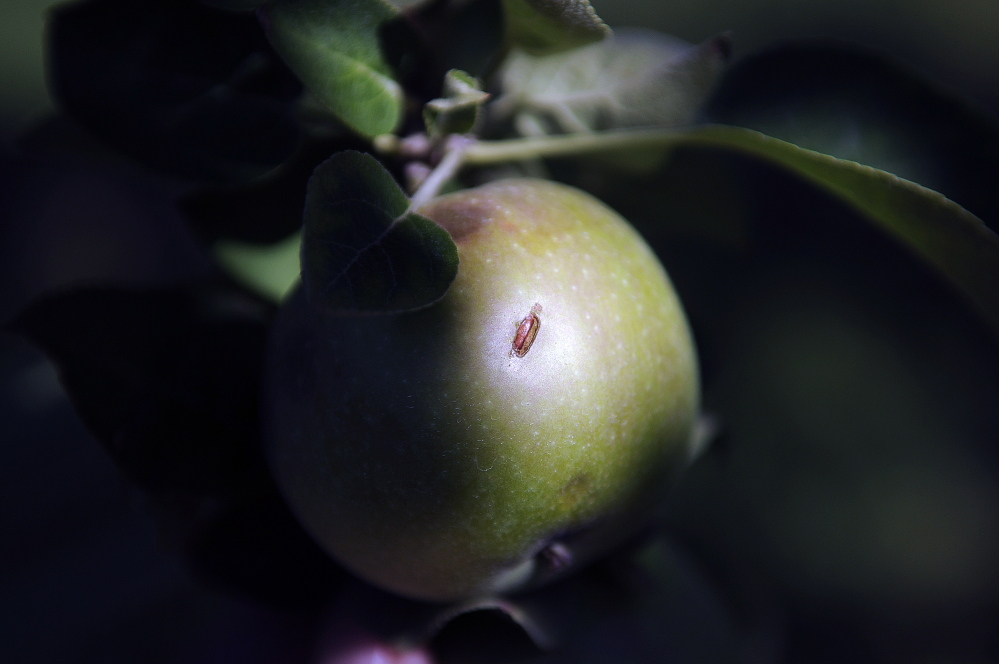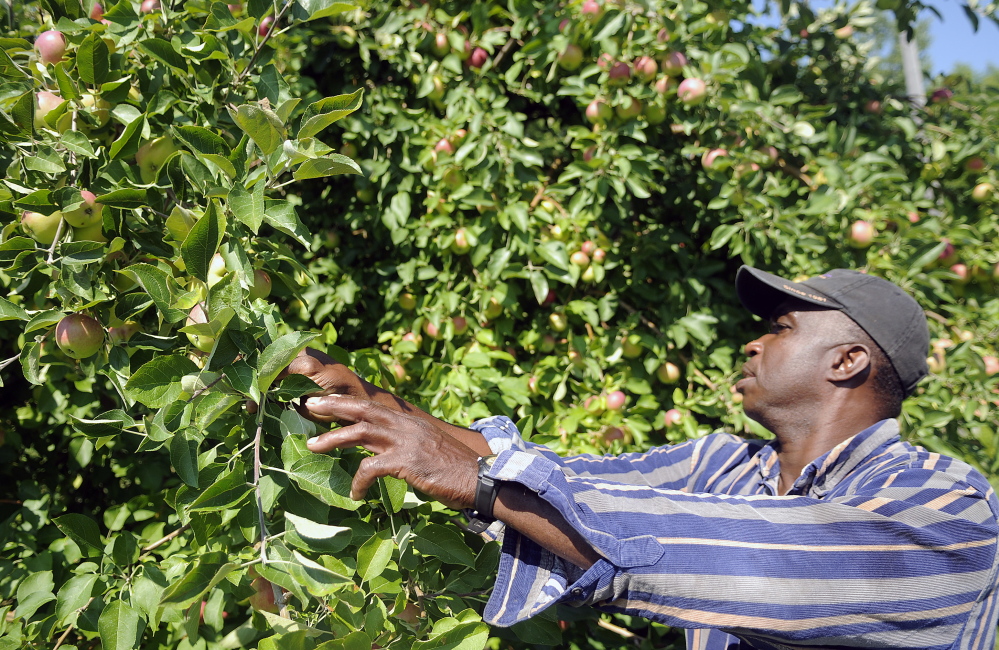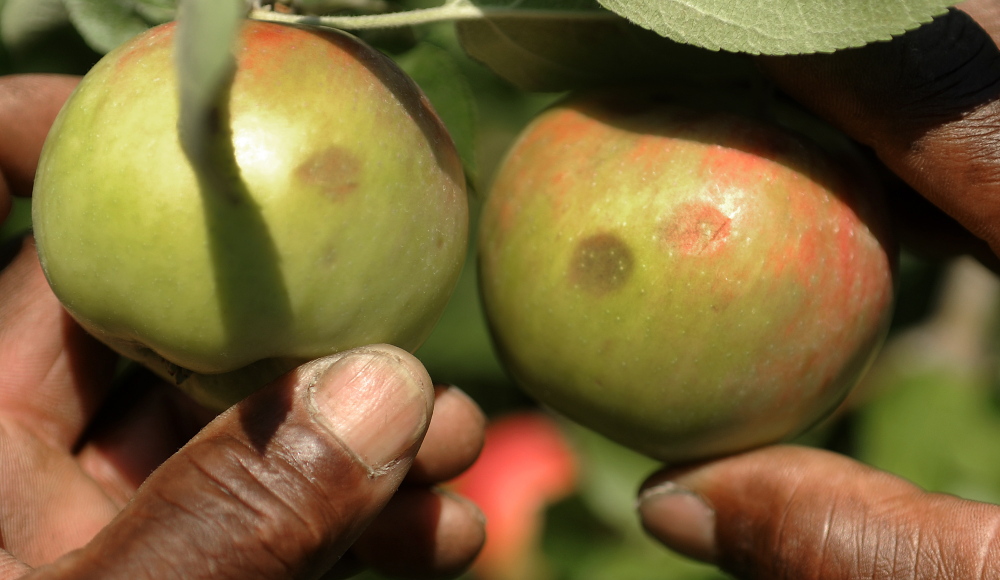It lasted less than two minutes. But in that time, a combination of hail and strong winds battered much of Lakeside Orchards’ crop, bruising and slicing apples across the Manchester farm’s 50 acres of trees.
The orchard wasn’t the only farm in the area hit by Saturday afternoon’s storm, which brought gusts up to 50 mph, heavy rainfall and hail to some parts of Kennebec County.
The University of Maine’s research farm in Monmouth, Highmoor Farm, reported significant crop damage from the storm, and Emery Farm in Wayne suffered damage to all of its 15 acres of vegetable crops.
Renae Moran, university professor and tree fruit specialist for the university’s Cooperative Extension, said the university’s farm suffered a complete apple crop loss because of the hail. But the fruit will still likely be used for cider, and research can still be done on the crop, she said. A lot of the research being done on the farm’s vegetable crops, however, won’t be salvageable, she said.
Marilyn Meyerhans, who owns Lakeside Orchards with her husband Steve, said the hail damage means they won’t be able to sell the orchard’s apple crops wholesale to Hannaford, other stores and distributors, but the orchard on Route 17 will still be open to the public for apple picking near the beginning of September.
“It’s an emotional hit to us as much as a financial hit,” Meyerhans said.
She estimated that the hail that hit the orchard Saturday was no more than a quarter-inch thick, but the National Weather Service received reports of half-inch hail in Winthrop and inch-thick hail – about the size of a quarter – elsewhere in Manchester.
The couple also own The Apple Farm in Fairfield, so the Lakeside Orchards’ store will still stock its typical offering of apple varieties, mostly sourced from the Fairfield orchard, Meyerhans said.
“It’s sad to us because we do work so hard to make them perfect for people, so it’s kind of heartbreaking, actually. You get the call, there was hail, and you just,” Meyerhans said, sighing, “pit of your stomach kind of thing.”
She emphasized that the orchard will still be hosting its annual events and activities like wagon rides, but some of the apples on the trees won’t be as pretty or as useful. Although some will still be fine for baking and other uses, apples that suffered cuts from the hail won’t be able to be used at all, Meyerhans said.
Last year, the orchards picked 35,000 bushels of apples and continued to provide apples to stores into May, Meyerhans said. Its inventory won’t last as long this year, she said.
“They want perfect apples. You can’t go into a grocery store and sell damaged apples,” she said.
In the Meyerhans’ roughly 40 years owning an apple orchard, including about 15 years owning Lakeside Orchards, she said they’ve seen hail damage their crop about five times.
For the owners of Emery Farm in Wayne, Alicia and Trent Emery, Saturday’s storm was their first encounter with so much hail damage.
The farm, in its sixth year, sustained varying degrees of damage to all of its vegetable crops, Trent Emery said. Reached by phone Monday, Emery said he was still evaluating the damage and trying to come up with solutions to salvage some value from damaged crops.
The extent of damage depended on the type of plant, he said. Soft-body vegetables, such as peppers and squash, had the most damage, and the scallions looked like they were hit with a shotgun, Emery said.
Although the vegetables can still be eaten, those heavily damaged by the hail won’t be marketable, he said. The farm plans to donate some of the damaged produce to food pantries, but Emery said he hopes to be able to get something in return for some of the damaged veggies.
Typically, the farm sells its produce at its farm stand, farmers markets and to wholesale markets, such as stores and institutions, Emery said.
“We’re not going belly up here. We’ll push through it,” he said.
Meyerhans also said that although whatever value they get for the apples from Lakeside Orchard won’t replace the revenue that would have come from selling undamaged apples, the orchard will survive the setback.
“Nature does this to us every once in a while,” she said. “There’s nothing you can do about it. You can’t run out there and put little umbrellas over everything. We take hits.”
Send questions/comments to the editors.




